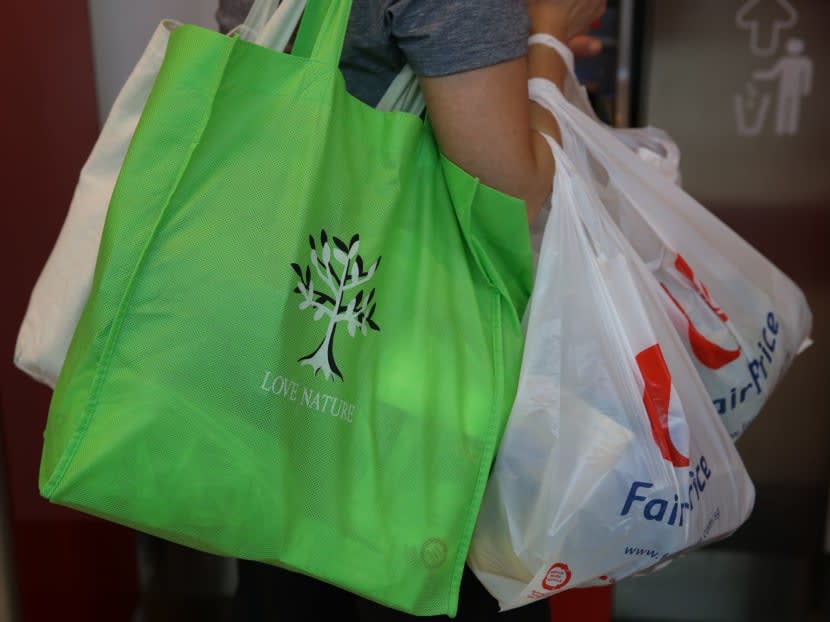NEA seeks public's views on proposal for supermarkets to charge 5 to 10 cents per plastic bag from 2023
SINGAPORE — The National Environment Agency (NEA) is looking for public feedback on its proposed policy for supermarkets to charge for plastic bags in a bid to cut down plastic waste.

The National Environment Agency is proposing that supermarkets apply a minimum charge of 5 to 10 cents per plastic bag by the first half of 2023.
- Under the proposal, supermarkets earning above a certain revenue will have to charge a minimum fee of 5 to 10 cents per bag
- The National Environment Agency is proposing to implement this by the first half of 2023
- A 2018 study found that shoppers here took an average of 146 disposable carrier bags each from supermarkets annually
SINGAPORE — The National Environment Agency (NEA) is looking for public feedback on its proposed policy for supermarkets to charge for plastic bags in a bid to cut down plastic waste.
It is proposing the following:
- Supermarkets, which earn above a stipulated amount in annual revenue, will apply a minimum charge of 5 to 10 cents per bag by the first half of 2023
- These charges will only apply in stores and not for online orders
- Supermarket operators will also have to track and publicly disclose their bag usage, proceeds from plastic bag charges and how they spent the proceeds.
The proposal comes after a citizen’s workgroup was convened by the Ministry of Sustainability and the Environment (MSE) and NEA in September 2020 to discuss how to reduce the use of disposable carrier bags.
Whether retailers should charge for plastic bags has been a long-running debate here and while there is no nationwide policy mandating such a charge, some retailers have experimented with various forms of similar charges.
NTUC FairPrice, for example, is now charging customers 20 cents per transaction for plastic bags at some of its supermarkets.
Officials have previously said that the Government was in no “hurry” to impose an outright ban on plastic bags given that Singapore already harvests energy from incinerating plastic waste, and that reusables — rather than other forms of disposable bags such as paper ones — is more environmentally friendly in Singapore’s case.
NEA said on Thursday that the proposed 5 to 10 cents charge per bag was to “strike a balance” between cutting bag use and minimising the cost impact on shoppers who make large purchases and lower-income households.
Households and trade premises in Singapore throw away about 200,000 tonnes of disposables annually, enough to fill about 400 Olympic-sized swimming pools. Disposable bags made up about two-thirds of this.
A 2018 study by the Singapore Environment Council further found that shoppers took an average of 146 disposable carrier bags each from supermarkets alone every year.
Implementing a bag charge, NEA said, will contribute to the Singapore Green Plan 2030, which aims to cut waste to landfill per capita per day by 20 per cent by 2026.
The agency said that in developing the proposal, it had consulted over 1,000 stakeholders through focus group discussions, surveys and consultation sessions.
It had also studied the experiences of other jurisdictions such as Hong Kong, the Netherlands and Taiwan, where a plastic charge resulted in a 60 to 80 per cent fall in the number of plastic bags given out.
The public consultation will end on Feb 17 and all responses received by the closing date will be considered by NEA, which will then publish a report summarising the submissions and the agency's responses.
Members of the public may give their views and suggestions at https://go.gov.sg/feedbackcarrierbagchargepr.











